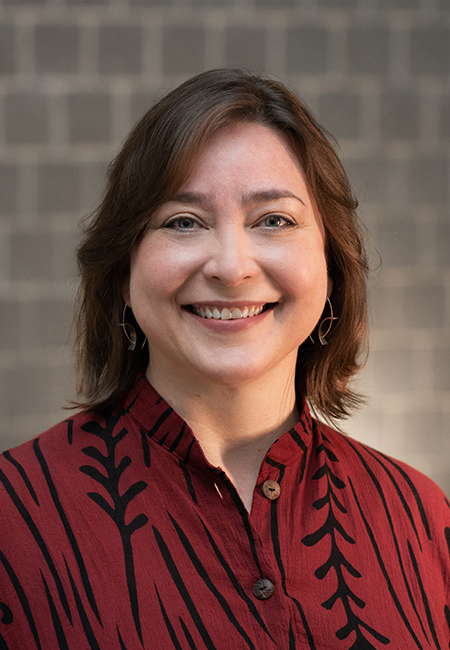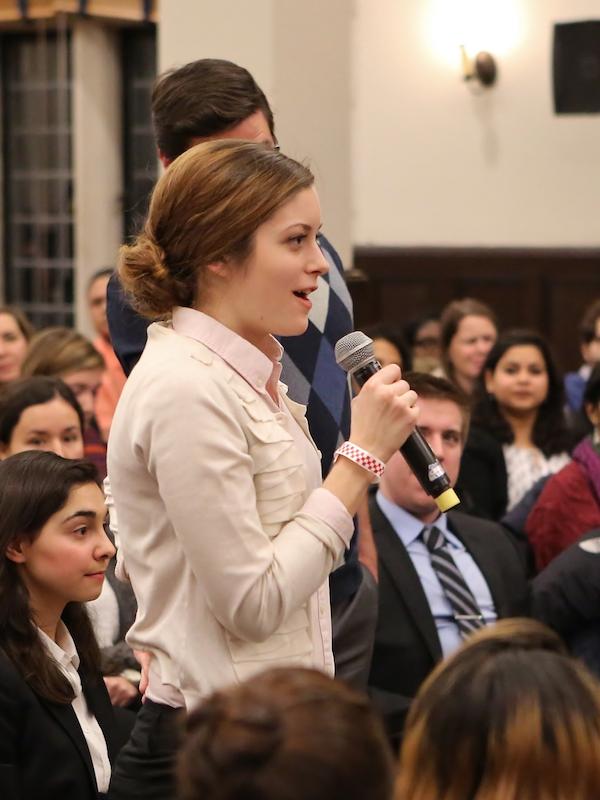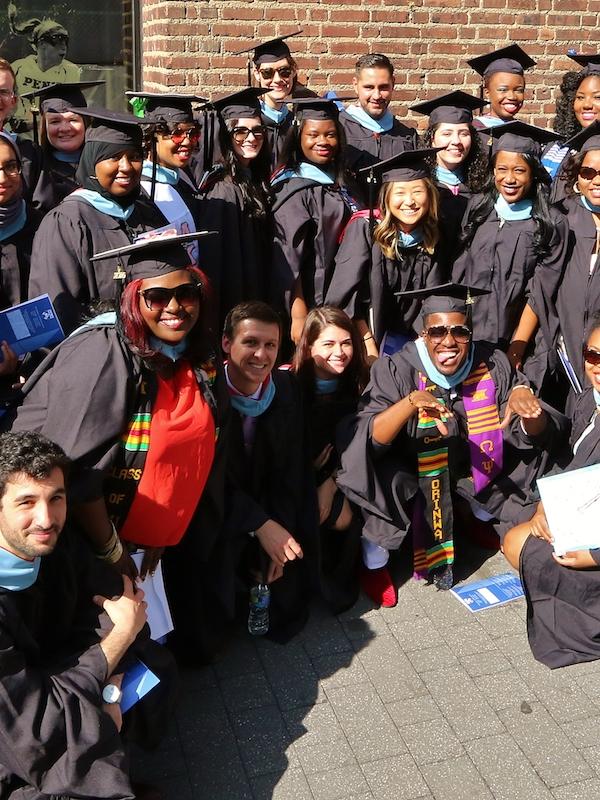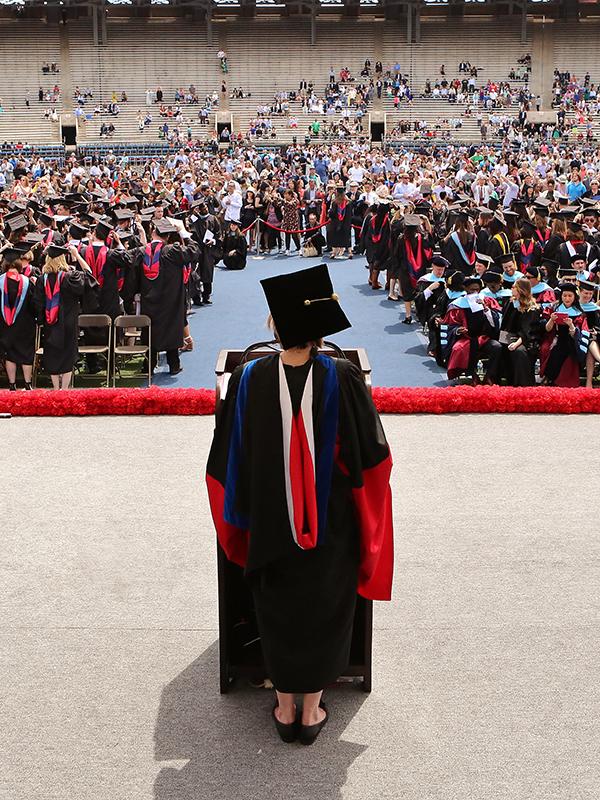Turning Data Into Knowledge
by Karen Brooks
Every day, Stacey Lopez, GRD ’11, comes to work and uses data to tell stories. As Penn’s associate vice president for institutional research and analysis, Lopez heads the office that collects and distills information on anything and everything related to Penn students, faculty, and staff.

“We play the role of institutional mirror, reflecting the University back through quantitative metrics to show both positive trends and opportunities for improvement,” says Lopez, noting that the data that comes out of “IR”—as institutional research is known by higher education insiders—supports planning and decision-making in areas as diverse as admissions, curriculum, staffing, student life, finances, facilities, and alumni relations. The office also coordinates reporting to state and federal entities, accrediting agencies, and other organizations.
Lopez has worked in IR for seventeen years after a “first career” teaching mathematics and statistics at Wichita State University, a background that has served her well since her current field demands an ability to translate numbers into meaningful facts. The recent emergence of “big data” has generated an unprecedented demand for institutional analysts as technology allows organizations to collect and store more information about their business than ever before. Some have called data “the new oil.” While Lopez agrees, she takes the analogy a step further. “Very few people would know what to do with a barrel of raw crude oil—it is necessary to refine that oil before it can be turned into energy,” she explains. “I see IR as playing a role similar to the refinery for the institution—we take raw data and turn it into useful information that can support the decision-making process.”
“The wealth and variety of students and faculty at Penn provide a rich landscape to do the research that we do, and it is interesting to see how we are similar to peer organizations versus what makes us uniquely Penn.” —Stacey Lopez, GRD ’11, associate vice president for institutional research and analysis
A few years after arriving at Penn in 2007, Lopez enrolled in GSE’s Executive Doctorate in Higher Education Management program. While her bachelor’s and master’s degrees in mathematics and statistics and her second master’s degree in industrial engineering provided her with the technical skills to succeed in IR, they did not offer insight into the higher education landscape. Lopez felt she could better serve the University if she understood its place among its peers.
She reports that one of her most powerful experiences in the program was a study abroad trip to South Africa. The opportunity to compare and contrast another country’s educational issues with those back home improved her understanding of the challenges universities face and deepened her appreciation for her position.
“The wealth and variety of students and faculty at Penn provide a rich landscape to do the research that we do, and it is interesting to see how we are similar to peer organizations versus what makes us uniquely Penn,” she says. “At the end of the day, IR is a service organization, and this is a fascinating place to serve.”
This article originally appeared in the Fall 2018 issue of The Penn GSE Magazine.




